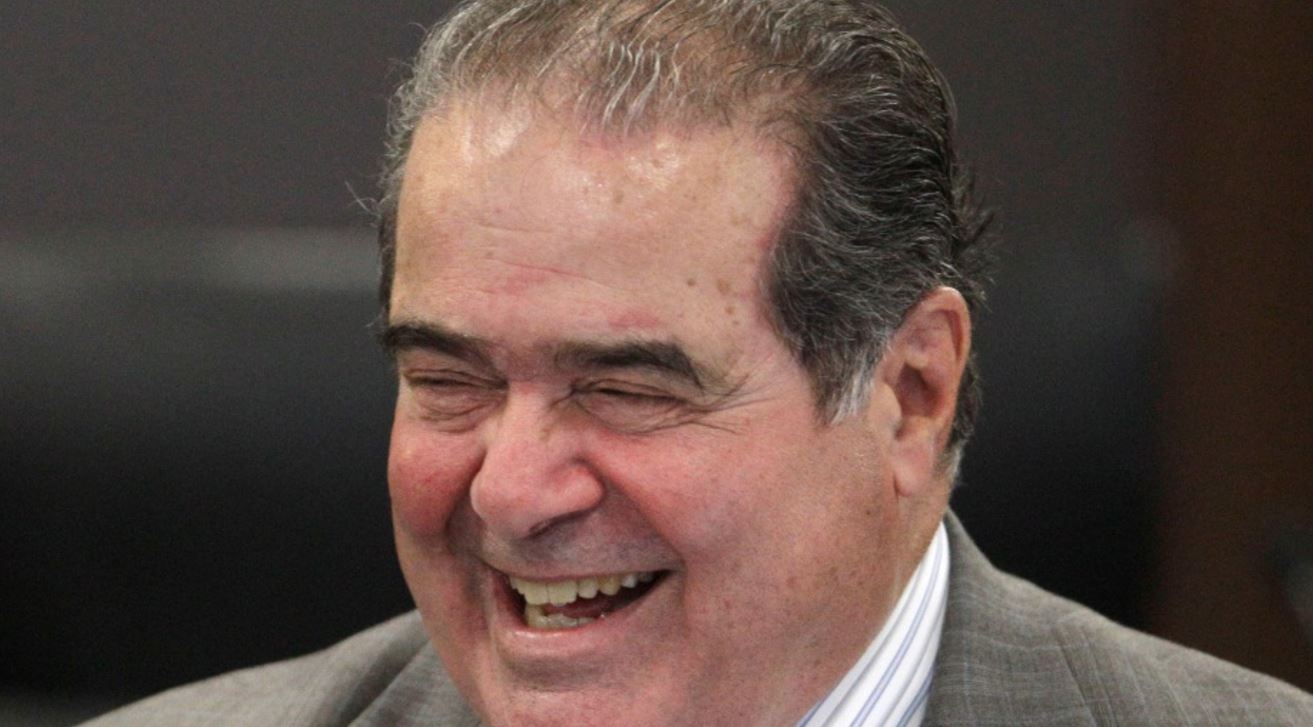Antonin Scalia just did the work of the founding fathers
A photo widely shared upon the death of Justice Antonin Scalia is a reminder of what the stakes are when we vote for president.
The photo shows a beaming Scalia and a beaming Ronald Reagan, who nominated him. It shows then-Chief Justice William Rehnquist, who couldn’t be happier with the pick.
The Constitution sets almost no requirements for those who serve on our highest court. In fact, they need not even be attorneys. It certainly doesn’t prohibit rank political sharks from attaining such a pivotal station, someone like William Rehnquist.
Sure, Rehnquist had considerable judicial experience when tapped for the court by Richard Nixon. He had clerked for the court and served as assistant attorney general. However, Rehnquist had really earned his stripes as a cutthroat Republican operative.
In his home state of Arizona in the 1960s reported the New York Times, Rehnquist “helped plan and direct a poll-watching program that was intended to block what Republicans called illegal attempts by Democrats to win elections by bringing large numbers of unqualified black and Hispanic residents to the polls shortly before they closed.”
Unqualified? How so? At the time, Arizona was one of few remaining states still applying a literacy test to voting. That became illegal with the Voting Rights Act of 1965.
Fast-forward 50 years, when Scalia, Rehnquist’s ideological heir, scored one of his great career achievements. He and a one-vote majority managed to gut key provisions of the Voting Rights Act.
This made possible the continuation of egregious state efforts at “ballot security” laws, measures calculatedly designed to reduce voter participation by minorities.
As U.S. District Judge Nelva Gonzales Ramos observed, Texas’ so-called voter security law had an “impermissible discriminatory effect against Hispanics and African-Americans.”
Justice Scalia did not see it that way, or at least didn’t think the federal government needed to be policing this matter any longer through Justice Department pre-clearance of voter I.D. and redistricting schemes.
He called the Voting Rights Act antiquated. Indeed, he said it had become a “racial entitlement.”
Racial discrimination is ancient, implied the court majority. The court affirmed this even as Republican schemers made every effort to achieve exactly what Judge Ramos said they were doing – writing laws that discriminate against racial minorities.
With the 2015 ruling, states could keep playing by the Rehnquist rules.
Whatever else can be said about Scalia, without question he was one of the most politically driven justices in history. If you shared his politics, that was fine with you. If you are black or brown, not so much.
In 2012, when dissenting with a court majority that overthrew Arizona’s abominable law allowing police to ask a brown person’s immigration status, thereby institutionalizing racial profiling, Scalia used a stunning comparison. He wrote longingly for the days when states controlled their own populations — not only with their own immigration laws but also laws to “restrict the travel of freed slaves.”
Memories. Ah, those good ol’ states’ rights days.
The irony of all of this is that Scalia (and Rehnquist) talked a good game about democracy, about how the courts should not override the will of the people as enacted by state legislatures.
The problem with the rhetoric of justices like Scalia and Rehnquist is that they backed efforts to make democracy less representative of society in its sum – that sum including many colors, origins, faiths, incomes, sexual orientations, and more.
Democracy? They fought to keep this democracy a tool of the privileged and already empowered. And isn’t that what the founders intended?
